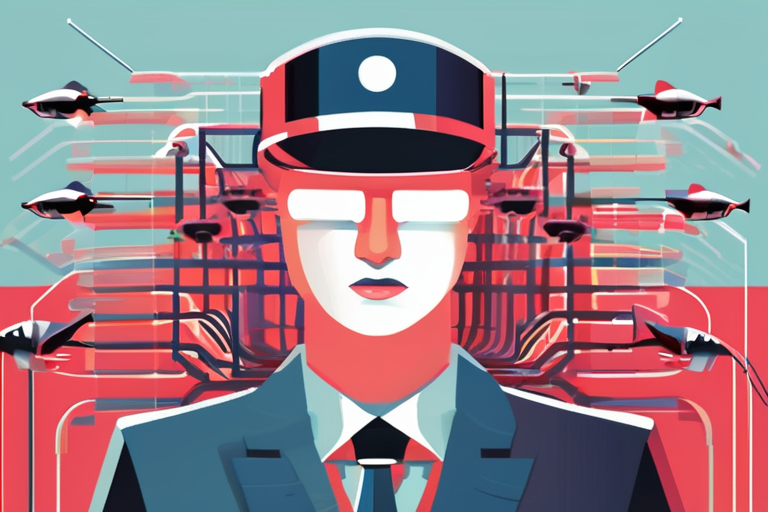AI Phishing Detection Takes Center Stage as Cybersecurity Threats Intensify
In a stark reminder of the evolving cybersecurity landscape, researchers have demonstrated that artificial intelligence (AI) can craft highly persuasive phishing emails capable of fooling even the most vigilant individuals. This development has sparked concerns among experts, who warn that AI-powered phishing threats will define cybersecurity in 2026.
According to a joint experiment conducted by Reuters and Harvard University, popular AI chatbots were able to generate convincing phishing emails with just one simple prompt. The researchers sent these emails to 108 volunteers, of whom 11 clicked on the malicious links. This experiment serves as a sobering reality check, highlighting the potential for AI to transform phishing into an even more formidable threat.
The emergence of Phishing-as-a-Service (PhaaS) platforms has contributed significantly to this growing concern. Dark web marketplaces like Lighthouse and Lucid offer subscription-based kits that enable low-skilled criminals to launch sophisticated campaigns. Recent reports indicate that these services have generated over 17,500 phishing kits in the past year alone.
"AI-powered phishing is a game-changer," said Dr. Maria Rodriguez, a cybersecurity expert at Harvard University. "It's no longer just about sending generic emails; it's about creating personalized and convincing messages that can bypass even the most advanced security systems."
The implications of this development are far-reaching, with experts warning that AI-powered phishing threats will become increasingly prevalent in 2026. As companies struggle to keep pace with these evolving threats, AI-powered phishing detection is emerging as a top priority.
"We're seeing a perfect storm of factors coming together – the rise of PhaaS, the increasing sophistication of AI-powered attacks, and the growing complexity of cybersecurity environments," said John Lee, CEO of CyberSentry. "To stay ahead of these threats, companies need to invest in AI-powered phishing detection solutions that can identify and mitigate these risks in real-time."
The latest developments in AI-powered phishing detection highlight the importance of collaboration between researchers, industry experts, and policymakers. By working together, they aim to develop more effective countermeasures against this growing threat.
As the cybersecurity landscape continues to evolve, one thing is clear: AI-powered phishing detection will be a defining feature of cybersecurity in 2026. Companies must prioritize investment in these solutions to stay ahead of emerging threats and protect their users from increasingly sophisticated attacks.
Background
Phishing has long been a major concern for cybersecurity professionals, with attackers using social engineering tactics to trick individuals into divulging sensitive information or clicking on malicious links. However, the rise of AI-powered phishing threats has taken this threat to new heights.
Additional Perspectives
Experts warn that the increasing sophistication of AI-powered phishing attacks will require companies to rethink their security strategies. "We need to move beyond traditional signature-based detection methods and adopt more advanced techniques that can identify and mitigate these risks," said Dr. Rodriguez.
As researchers continue to explore the potential of AI in cybersecurity, they are also working on developing new countermeasures against AI-powered phishing threats. These solutions aim to leverage machine learning algorithms to detect and prevent these attacks in real-time.
Current Status and Next Developments
The latest developments in AI-powered phishing detection highlight the importance of continued research and investment in this area. As companies navigate the complex cybersecurity landscape, they must prioritize investment in AI-powered phishing detection solutions to stay ahead of emerging threats.
In 2026, expect to see a significant increase in the adoption of AI-powered phishing detection solutions as companies seek to protect themselves against increasingly sophisticated attacks.
*Reporting by Artificialintelligence-news.*



 Hoppi
Hoppi

 Hoppi
Hoppi

 Hoppi
Hoppi

 Hoppi
Hoppi

 Hoppi
Hoppi

 Hoppi
Hoppi











